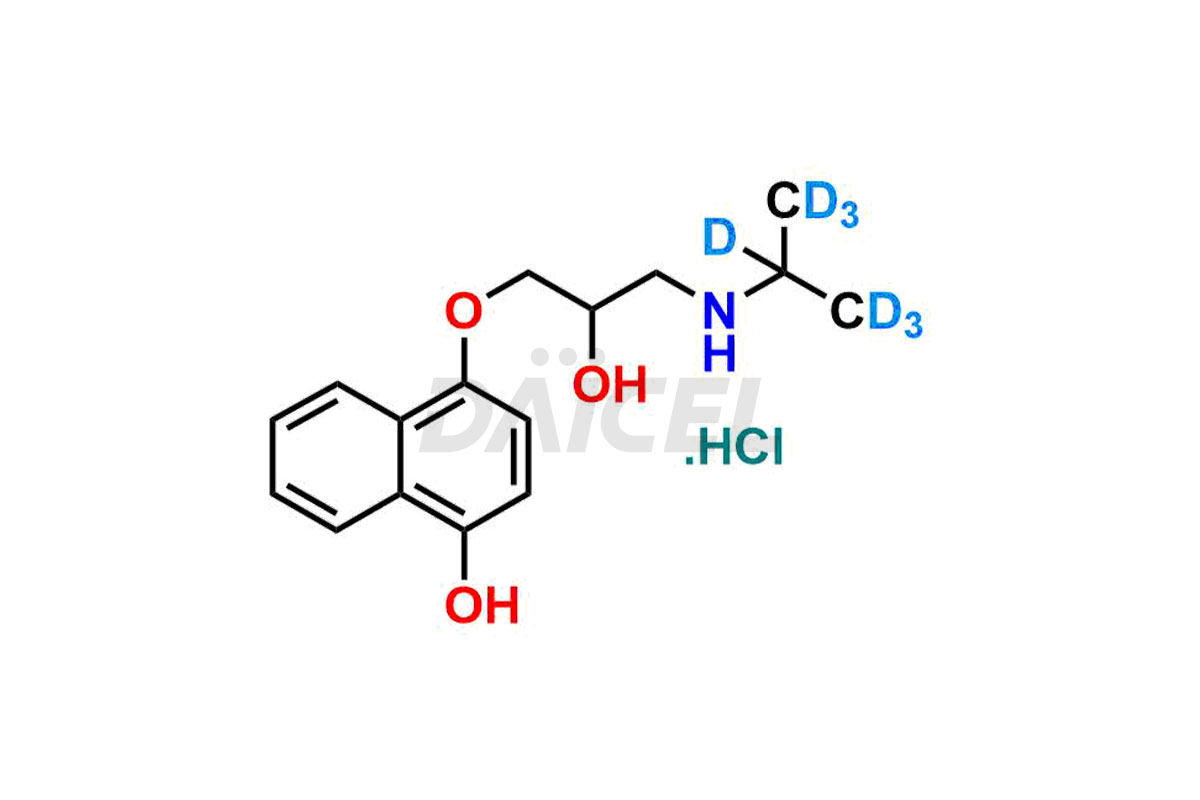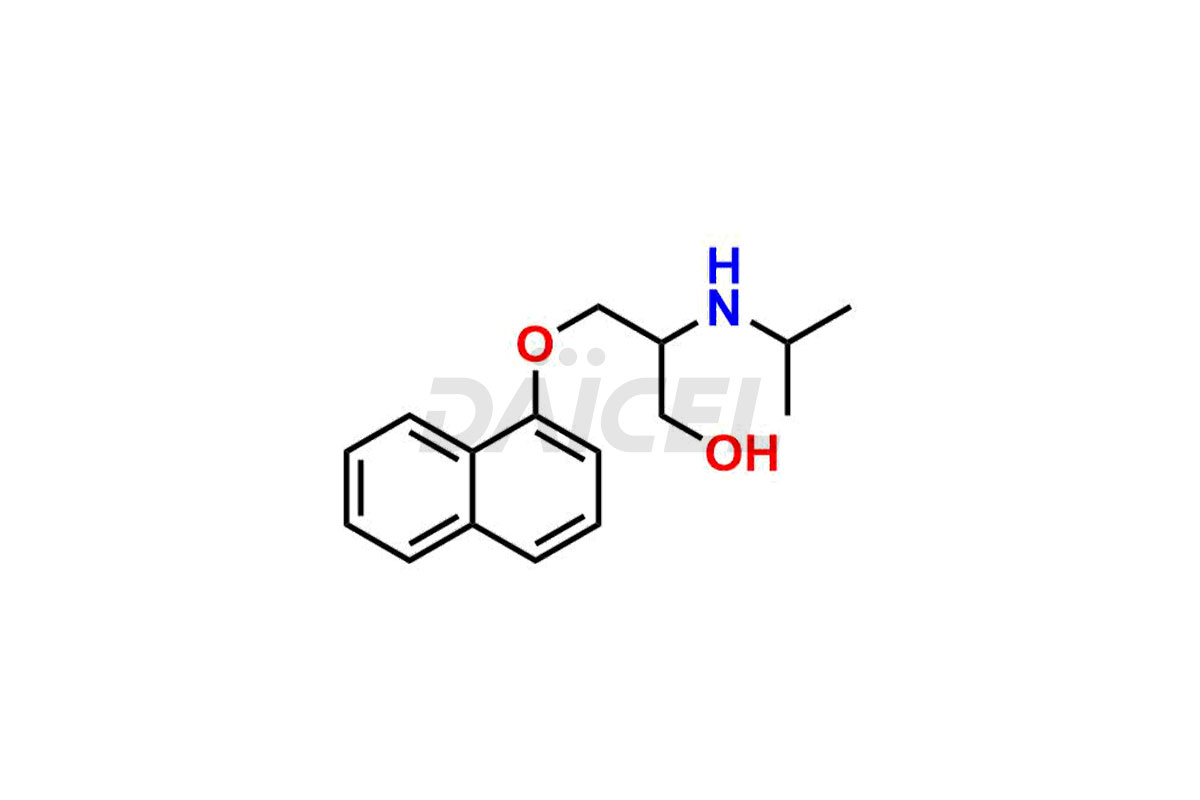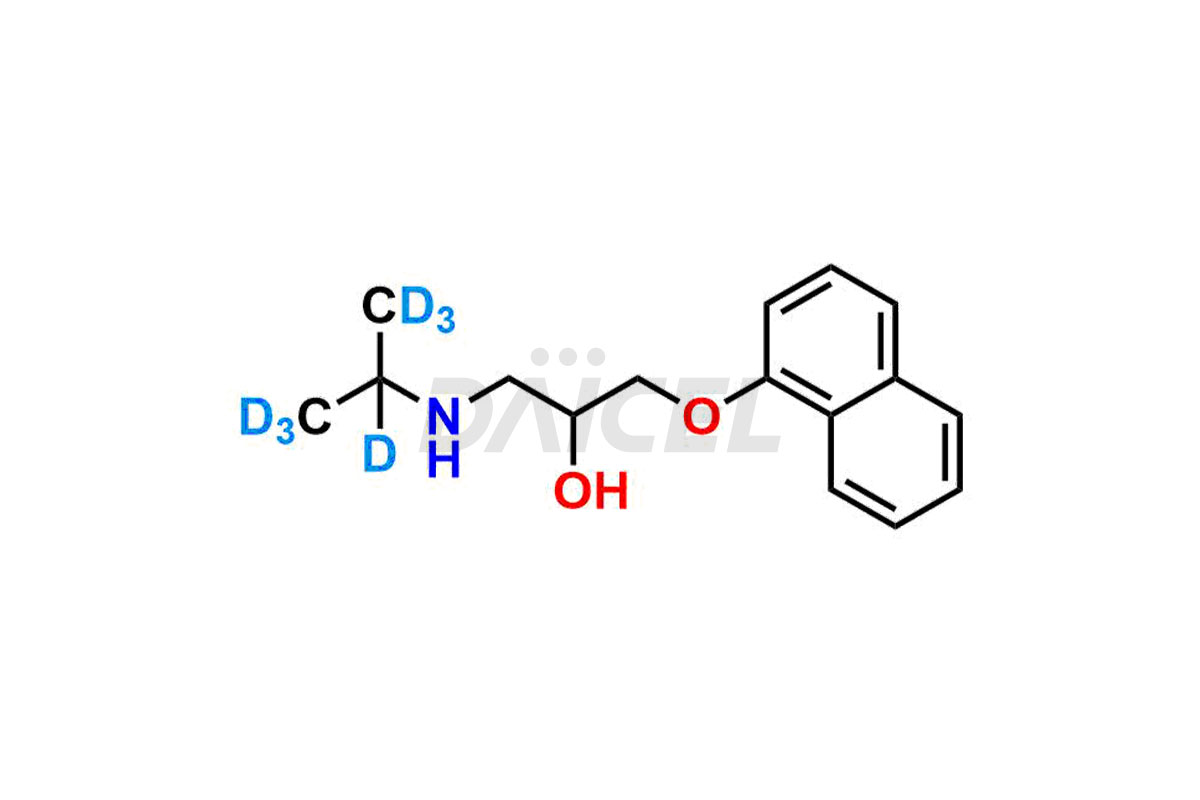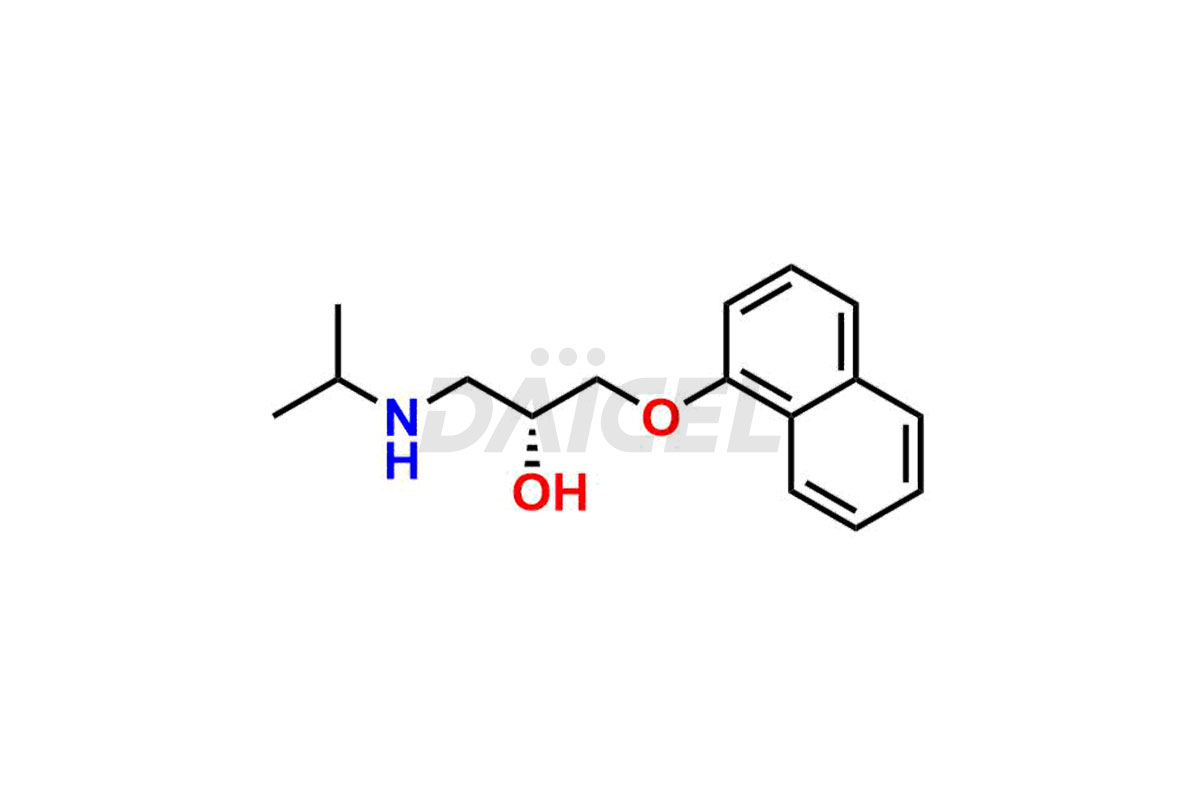Propranolol
General Information
Propranolol Impurities and Propranolol
Daicel Pharma provides Propranolol impurity standards such as R-Propranolol, S-Propranolol, and Iso Propranolol. They are essential for the analysis of the stability, quality, safety, and effectiveness of Propranolol. Daicel Pharma offers custom synthesis for high-standard Propranolol impurities and delivers them globally.
Propranolol [CAS: 525-66-6] is a propanolamine to treat hypertension. It is a vasodilator agent and an anti-arrhythmia drug.
Propranolol: Use and Commercial Availability
Propranolol treats hypertension, coronary atherosclerosis-related angina pectoris, atrial fibrillation, myocardial infarction, migraine, essential tremor, hypertrophic subaortic stenosis, pheochromocytoma, and proliferating infantile hemangioma. This drug is available under brand names such as Inderal, Inderal LA, Innopran XL, and Hemangeol.
Propranolol Structure and Mechanism of Action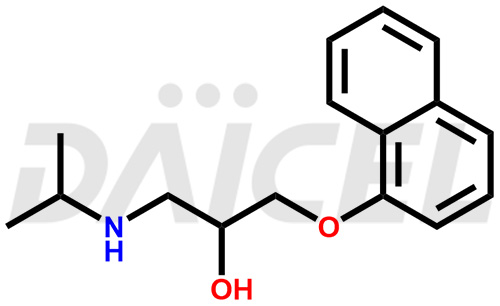
The chemical name of Propranolol is 1-[(1-Methylethyl)amino]-3-(1-naphthalenyloxy)-2-propanol. Its chemical formula is C16H21NO2, and its molecular weight is approximately 259.34 g/mol.
Propranolol blocks nonselective β-adrenergic receptors leading to vasoconstriction.
Propranolol Impurities and Synthesis
Propranolol impurities can include related compounds, degradants, and process-related impurities that may affect its effectiveness and safety. Analytical procedures such as HPLC evaluate and quantify these impurities. Control strategies include improving synthesis1 conditions, and purification techniques may aid in reducing these impurity levels in the drug.
Daicel Pharma provides a Certificate of Analysis (CoA) for Propranolol impurity standards such as R-Propranolol, S-Propranolol, and Iso Propranolol. Daicel Pharma operates a cGMP-certified analytical laboratory that provides the CoA, which includes thorough characterization data including 1H NMR, 13C NMR, IR, MASS, and HPLC purity2. On request, we give further characterization details, such as 13C-DEPT. Daicel Pharma’s expert team prepares Propranolol impurities and labeled compounds to analyze generic Propranolol. Furthermore, we provide Propranolol-D7 and 4-Hydroxy propranolol-D7 hydrochloride, a deuterium-labeled Propranolol standard to assist bioanalytical research and Bioavailability/Bioequivalence (BA/BE) studies.
References
FAQ's
References
- Crowther, A. F.; Smith, L. H., β-Adrenergic blocking agents. II. Propranolol and related 3-amino-1-naphthoxy-2-propanols, Journal of Medicinal Chemistry, Volume: 11, Issue: 5, Pages: 1009-13, 1968
- Di Salle, E.; Baker, K. M.; Bareggi, S. R.; Watkins, W. D.; Chidsey, C. A.; Frigerio, A.; Morselli, P. L., Sensitive gas chromatographic method for the determination of propranolol in human plasma, Journal of Chromatography, Volume: 84, Issue: 2, Pages: 347-53, 1973
Frequently Asked Questions
Is it safe to use Propranolol with impurities present?
The safety of using Propranolol depends on the nature and concentration of the impurities present. If impurity levels are within acceptable limits by regulatory authorities, the medication is generally considered safe.
How can Propranolol impurities be minimized during storage?
Propranolol should be stored according to the accurate synthesis instructions to minimize the formation of impurities during storage. Adhering to the recommended storage conditions helps maintain the drug's stability and minimizes impurity formation.
How are Propranolol impurities detected?
Impurities in Propranolol are detected using various analytical techniques, such as high-performance liquid chromatography (HPLC). These methods can accurately identify and quantify impurities present in the drug.
What are the temperature conditions required to store Propranolol impurities?
Propranolol impurities should be stored at a regulated room temperature of 2-8°C or as specified on the Certificate of Analysis (CoA).
Note: Products protected by valid patents by a manufacturer are not offered for sale in countries having patent protection. The sale of such products constitutes a patent infringement, and its liability is at the buyer's risk.

